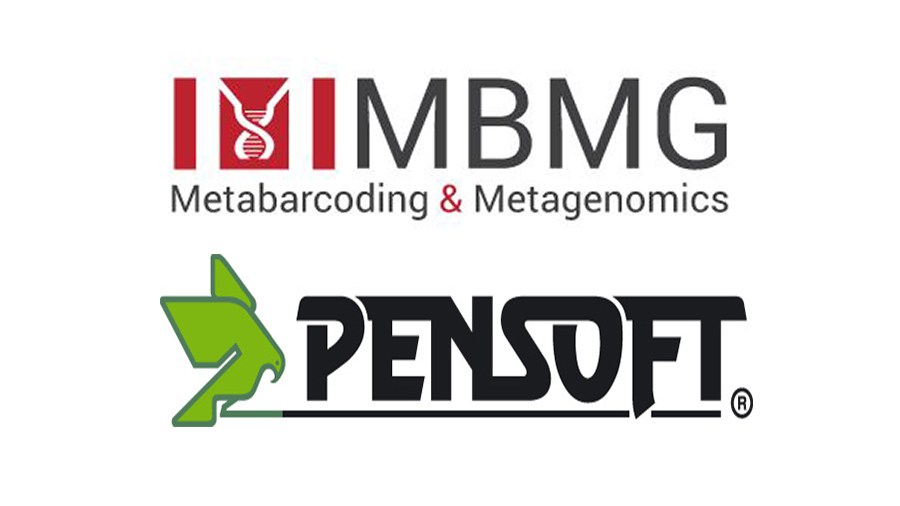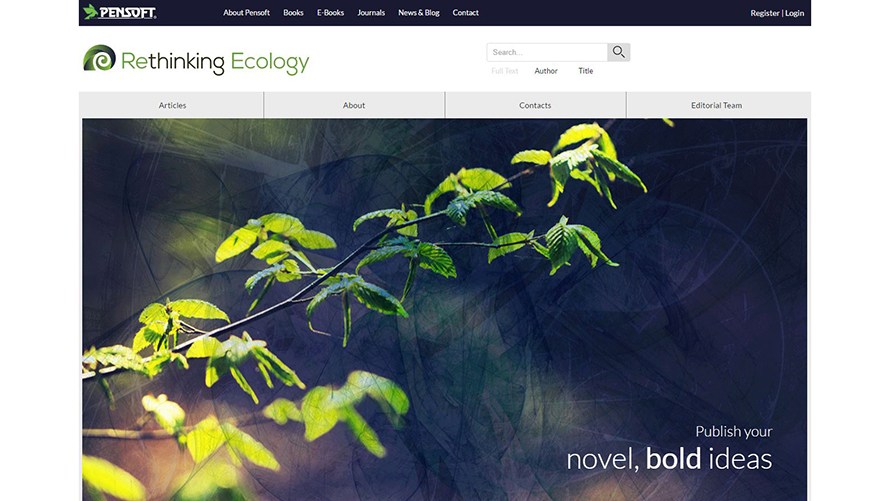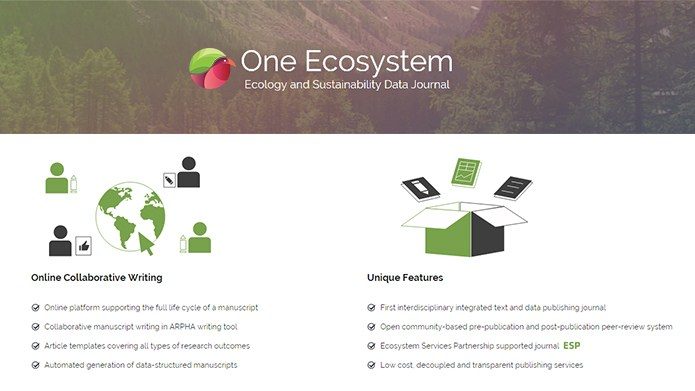A new innovative open-access academic journal Metabarcoding and Metagenomics (MBMG) is launched to welcome novel papers from both basic and applied aspects.
Focusing on genetic approaches to study biodiversity across all ecosystems, MBMG covers a considerably large scope of research including environmental, microbial and applied metabarcoding and metagenomics (especially DNA-based bioassessment and -monitoring, quarantine, nature conservation, species invasions, eDNA surveillance), as well as associated topics, such as molecular ecology, DNA-based species delimitation and identification, and other emerging related fields. Submissions of bioinformatic approaches to MBMG (algorithms, software) are also encouraged.
Featuring novel article formats and data publishing workflows, MBMG is to reflect the rapid growth in the use of metabarcoding and metagenomics in life and environmental sciences.
Issued via ARPHA – the first ever publishing platform to support manuscripts all the way from authoring to peer review to publication and dissemination, designed by the academic publisher and technology provider Pensoft, the new journal is to host a wide range of outcomes from across the research cycle, including data, models, methods, workflows, software, perspectives, opinions, implementation strategies, as well as conventional research articles.
While the above-mentioned publication types are already available in other journals published on the ARPHA platform, such as Research Ideas and Outcomes (RIO), Biodiversity Data Journal and One Ecosystem, MBMG provides five extra domain-specific article types, namely: Emerging Technique, Applied Study, DNA Barcode Release, Primer Validation and Probe Validation.
The journal’s articles are to be available in three formats (PDF, XML, HTML) and full of semantic enhancements for better human- and machine-readability and discoverability. The XML-based workflow also ensures that content and data are available for extraction, indexing and re-use immediately after publication.
With Pensoft standing for transparent, reproducible and open science, the authors at MBMG are strongly encouraged to make all data publicly available either within the publication itself, or to link to external repositories. In their turn, the peer reviewers are also suggested to provide public access to their reviews and identities.
In time for the launch, MBMG has already gathered a team of experienced and renowned scientists from across the globe together on its editorial and advisory board.
“I am pleased to introduce the Metabarcoding and Metagenomics journal to the family of Pensoft,” says Prof. Lyubomir Penev, Founder and Managing Director at Pensoft. “With its exhaustive scope and advanced services and concept, I believe it fills fantastically a niche in our strong portfolio of mostly biodiversity- and ecology-themed journals.”
“Metabarcoding and metagenomics approaches are rapidly progressing and revolutionise research and its application alike,” Chief Editor Prof. Florian Leese states. “With the MBMG journal we provide an ideal platform to respond to this rapidly growing field, nucleate the emerging knowledge and stimulate further development.”
The first batch of research papers published in MBMG are now available on their new website.
“MBMG not only complements the range of journals in the field of molecular environmental life sciences, but also stands out as a novel outlet providing several unique features designed to help researchers to prepare for, and professionally deal with, the massive “deluge” of data,” reads the Editorial.
To celebrate the launch, MBMG starts with a tempting offer to potential authors: publishing will be completely free of charge during the beginning stages of the journal.
###
Follow Metabarcoding and Metagenomics on Twitter | Facebook.




